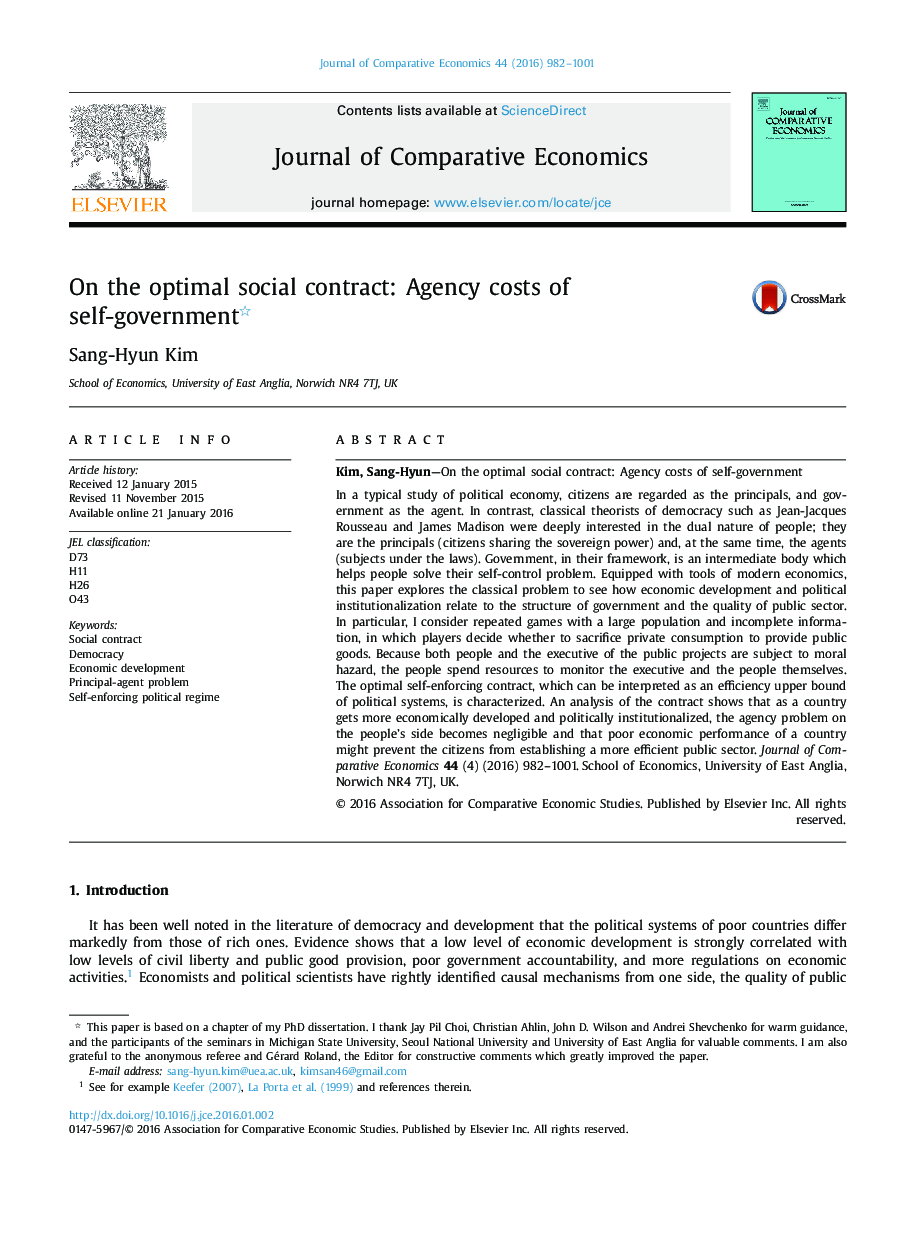| کد مقاله | کد نشریه | سال انتشار | مقاله انگلیسی | نسخه تمام متن |
|---|---|---|---|---|
| 5092150 | 1375916 | 2016 | 20 صفحه PDF | دانلود رایگان |
- In the classical models of democracy, people are both the principals (citizens sharing the sovereign power) and the agents (subjects under the laws), and government is an intermediate body which helps people solve their self-control problem.
- To better understand the dual nature of people, I analyze repeated games with a large population and incomplete information, in which players decide whether to sacrifice private consumption to provide public goods.
- The analysis shows that the agency problems on people's and the government's sides exacerbate one another.
- It is also shown that poor economic performance of a country might prevent the citizens from establishing a more efficient public sector.
In a typical study of political economy, citizens are regarded as the principals, and government as the agent. In contrast, classical theorists of democracy such as Jean-Jacques Rousseau and James Madison were deeply interested in the dual nature of people; they are the principals (citizens sharing the sovereign power) and, at the same time, the agents (subjects under the laws). Government, in their framework, is an intermediate body which helps people solve their self-control problem. Equipped with tools of modern economics, this paper explores the classical problem to see how economic development and political institutionalization relate to the structure of government and the quality of public sector. In particular, I consider repeated games with a large population and incomplete information, in which players decide whether to sacrifice private consumption to provide public goods. Because both people and the executive of the public projects are subject to moral hazard, the people spend resources to monitor the executive and the people themselves. The optimal self-enforcing contract, which can be interpreted as an efficiency upper bound of political systems, is characterized. An analysis of the contract shows that as a country gets more economically developed and politically institutionalized, the agency problem on the people's side becomes negligible and that poor economic performance of a country might prevent the citizens from establishing a more efficient public sector.
Journal: Journal of Comparative Economics - Volume 44, Issue 4, November 2016, Pages 982-1001
